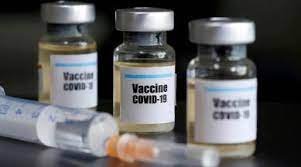In a significant stride towards combating dengue fever, the Serum Institute of India and Panacea Biotec, two leading drug manufacturers in the country, have submitted their applications to the Indian Council of Medical Research (ICMR) in response to the call for ‘Expression of Interest’ for collaborative Phase-III clinical trials for indigenous vaccine production. This development brings India closer to developing its first-ever vaccine against dengue, a mosquito-borne viral infection that affects millions of people worldwide.
The Phase-III clinical trial aims to assess the efficacy, safety, and immunogenicity of a tetravalent dengue vaccine candidate developed by Indian manufacturers. This crucial phase of testing is conducted to evaluate the vaccine’s effectiveness in a larger population and collect additional data on its safety profile and ability to induce an immune response. If successful, the results obtained from Phase-III trials will play a vital role in determining the vaccine’s approval and subsequent availability to the public.
With the necessary applications submitted, the trials are expected to commence around August, according to a senior health official. The initial focus will be on conducting trials for the adult vaccine, which holds promise in providing protection against all four serotypes of the dengue virus. This is particularly important as dengue fever is caused by four distinct serotypes, making it challenging to develop a vaccine that can effectively combat all strains.
The collaborative efforts of the Serum Institute of India and Panacea Biotec, both renowned pharmaceutical companies with extensive expertise in vaccine production, highlight the dedication and commitment of the Indian healthcare sector in addressing public health challenges. By leveraging their combined resources, knowledge, and infrastructure, these manufacturers aim to accelerate the development of a much-needed indigenous dengue vaccine.
Dengue fever is a global health concern, primarily affecting tropical and subtropical regions. The disease is transmitted through the bite of infected Aedes mosquitoes, which are commonly found in urban areas. Dengue infection can lead to severe flu-like symptoms, such as high fever, severe headache, joint and muscle pain, rash, and in severe cases, it can result in dengue hemorrhagic fever or dengue shock syndrome, which can be fatal.
India, with its vast population and high prevalence of dengue cases, bears a significant burden of this disease. The introduction of an effective vaccine would not only help in reducing the number of dengue cases but also alleviate the strain on healthcare resources. Vaccination plays a critical role in preventing infectious diseases and safeguarding public health.
The ongoing collaborative efforts between the Serum Institute of India, Panacea Biotec, and the Indian Council of Medical Research signify a significant milestone in the quest to develop a homegrown dengue vaccine. These manufacturers have a track record of successfully producing and supplying vaccines against various diseases, both domestically and internationally. Their involvement in the development of a dengue vaccine underscores the importance of indigenous research and manufacturing capabilities in addressing public health challenges.
The progress made in the development of the indigenous dengue vaccine is also a testament to India’s commitment to vaccine self-reliance and healthcare innovation. By fostering a robust ecosystem for research, development, and manufacturing of vaccines, India aims to strengthen its position as a global leader in healthcare and contribute to the global fight against infectious diseases.
As the anticipated Phase-III clinical trials for the dengue vaccine draw nearer, there is renewed hope for a breakthrough in combating this debilitating disease. The collective efforts of the Serum Institute of India, Panacea Biotec, and other stakeholders involved in the vaccine development process bring us one step closer to a future where dengue is preventable through vaccination. With continued advancements in medical science and collaborative partnerships, the vision of an effective indigenous dengue vaccine that can save lives and protect communities from the burden







